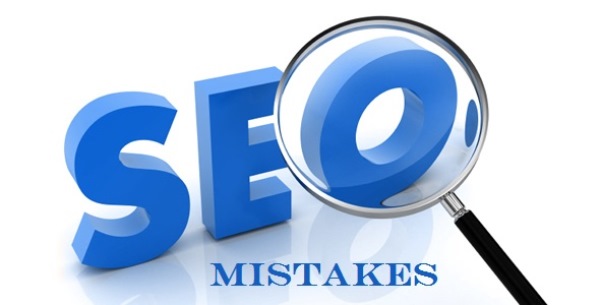SEO is one of the first buzz words you come across when you embark upon blogging. While content is the king of a blog, tactfully presenting the great content to your visitors and the search engines alike, is another vital facet in blogging. SEO lets you do exactly that. In simple words, search engine optimization is the lifeblood of your blog.
Unfortunately, once you know this fact, you tend to take SEO so seriously (aggressive SEO) that you many times end up doing it wrong or by wrong means. But you fail to realize that the search engines, especially the king of all, Google, cannot be outwitted. Even if you succeed initially, your success would definitely not last for long.
Here are some such SEO mistakes committed by many bloggers desperately or by ignorance. Consider this article a checklist and plan to rephrase your SEO techniques as you read on –

Redundant and Irrelevant Alt Tags
One of the common advice you come across when you try learning SEO tricks is using Alt Tags for images. This suggestion is often misunderstood and people unlawfully use these Alt tags to get their images indexed.
I recently came across a recipe blogger who was using ‘best American recipes’ for all of his blog’s images, instead of using recipe specific keyword (recipe name here) as his Alt Tag. This trick may get him traffic for the keyword ‘best American recipes’.
Now try weighing the amount of traffic he is losingfor not using recipe specific keywords and you would understand why this is bad SEO.
Resorting to Plagiarism
It is understandable that bloggers are expected to create content often to rank better in the SERP. But it sure does not give one the license to grab someone else’s work and use it without proper acknowledgement. This practice is termed as Plagiarism or Copyright infringement. This practice can considerably bring down both your online reputation, search engine ranking and your blog’s authority. Also, it would bright to doubt the work of the original author.
Sometimes it so happens that it’s not you, but a guest authoror an intern content provider at you website/blog who posts plagiarized stuff. To effectively curb such an incident, be sure to check the content for plagiarism. Don’t worry; it’s not an expensive affair. There are many free plagiarism checking services and software available for free in the blogging industry.
Buying Bad Links
Yes you read it right. I am not against buying links. I am only and clearly against bad links. By bad links I mean inbound links from various spam sites, also referred to as link farms. And let me mind you; it’s not just my opinion.
It’s the opinion of Google too. Google regards incoming links as a cue to strengthen your blog’s authority. But lately, many black hat SEO practitioners have been taking undue advantage of this algorithm and started buying irrelevant links from sites that are destined to produce such links (link farms).
Fortunately, to curb such unhealthy practices, Google developed its algorithm to detect the kind of links that point to your site. Now that it is capable to do so, Google can also ban your site from being indexed if it is revealed that you resort to link farms to deceive Google.
Hence, beware, and try buying legit backlinks in exchange of some kind favor by following white hat SEO techniques such as guest posting, giving away stuff like eBooks and utility widgets.
Leveraging Auto-Linking
Automatic link building refers to the process of generating backlinks to you blog with the help of some software. Usually such software pile up a list of related sites and then post a link from your site (generally selected through keyword matching).
Imagining the number of easy inbound links you can gain with almost no pain?
You need to rethink. Such auto-linking tactics are not worth a dime for your successful SEO results. Why? This is why…
– Most of these softwares use an email requesting for backlinks that make the webmaster mistake it to be a spam mail.
– Most clever bloggers protect their comments sections by moderating it. This means, agreeing to link to your blog or not, is the call of a live human in the back-end. Well, you know this. It’s most probably a – NO.
– Google now has in place a team of trained personnel whose job is to get hold of un-natural link building. If you happen to be caught, you will have to pay heavily in terms of losing authority and PR.
Avoiding Link Diversity
Last weekend I learnt a quite obvious yet often ignored SEO tactic – Link Diversity. A friend of mine wanted to post a guest article in a related niche. When I offered him to do it on my blog, he said this –
“Thanks for the offer mate, but I have already done many guest posts at your site. I have enough links from your blog now. I am looking for other blogs to ensure link diversity.”
This reply from him, made me once again understand that while building links is necessary, building links from wide range of web-pages is as important. This helps Google recognize us as a ‘reasonably social’ author, thus affecting our authorship to a large extent.
I am done with sharing the paramount SEO ‘Do not’ practices. Hope it helped you. Do let me know in through the comment box below what are your worst SEO mistakes that can penalize a blog.




